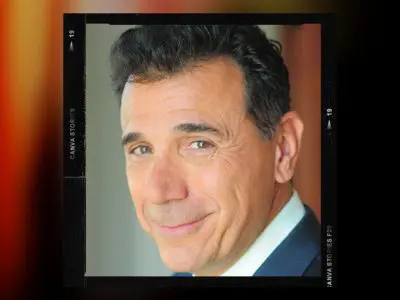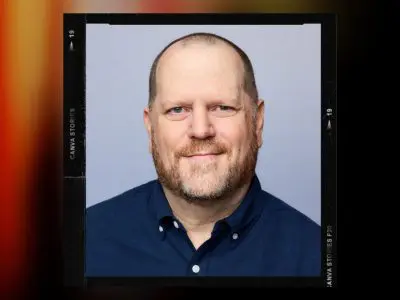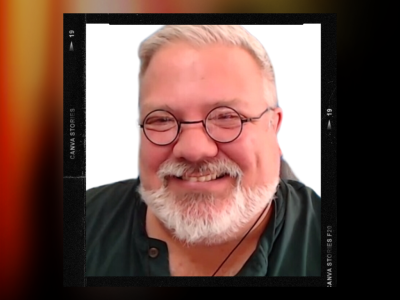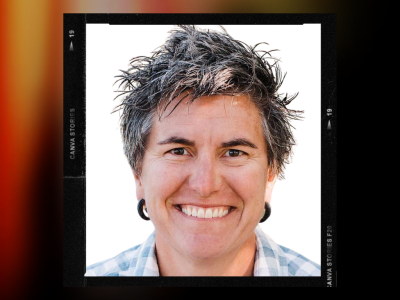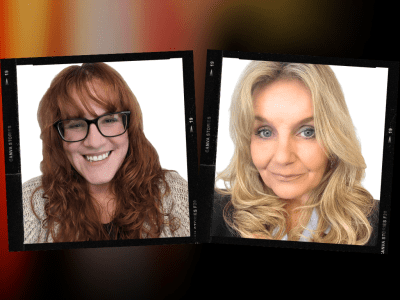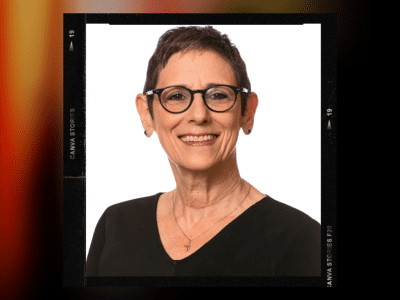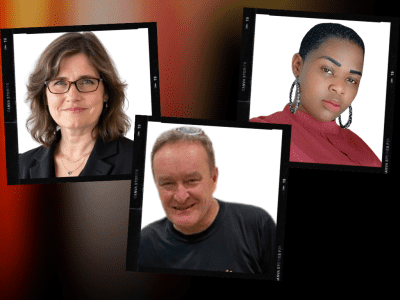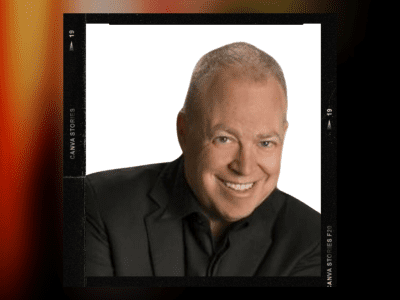Social Capital: Building a Workplace Community
W/ Dr. Frowsa Booker
Use the buttons above to listen now.
Transcript - Social Capital: Building a Workplace Community
Rich, Host: On this episode of Team Building Saves the World.
Dr. Froswa Booker, Guest: What does it look like when companies are intentional about creating spaces for their people to connect? What your practices may be internally may not work with your external community. Then your team feels like, Oh, here we go again. They’re doing another initiative that we got to do.
What is this about? You got something. He read. Now we got to do it. And so we did not plan that.
Rich, Host: No, no, it was wonderful.
Hello team. It’s me, your old friend, Rich Rinnisland, host of Team Building Saves the World. The show where I speak to thought leaders from around the world, discussing variable strategies and tools to help you and your team build a better work environment. And today we’re talking about social capital in the workplace with co-founder of HERiitage Giving Circle, one of the first black women giving circles. Co-founder of Power in Action Dallas and the founder, president, and CEO of Solstice Consultancy, Dr. Froswa Booker. But first I have to share some love with my supporters at TeamBonding. Your team is ready to experience teamwork through the power of play. To visit TeamBonding.com to learn more. Now team, join me in welcoming my guests. Author, speaker, winner of the 2023 Mora Award by Texas Women’s Foundation, Dallas Business Journal Women in Business Award, outstanding African American alumni award from UT Arlington, and the diversity ambassador of the Red Cross, Dr. Froswa Booker, doctor.
Thank you so much for coming on and seeing and joining the show with us. I. I gotta tell you, very rarely do I get to have a guest who just makes me feel so lazy in my everyday life.
Dr. Froswa Booker, Guest: Oh my god, do not say that. You’ve been busy too, so thank you for having me on the show. I’m excited to be here with you.
Rich, Host: Thank you. And of course, let’s get started like I always do out there for my team. They want to know more about you. Where you got started in all of this, and how your journey actually began to bring you here.
Dr. Froswa Booker, Guest: Oh, wow. So I grew up in Shreveport, Louisiana, and it was one of those things of watching my parents.
My dad was an entrepreneur and he had his own restaurant. He had gone to college, gotten a degree in fiscal education, and he said, I can make more money waiting tables. And he started doing that. And then the owner of the restaurant, Helped him get his own restaurant. And so I watched my parents as entrepreneurs, but I also saw them giving.
And I learned a lot about the relationship, you know, business, because if you have a restaurant, you can have great food, but if you’re not talking to people and connecting to my dad was very charismatic, um, that had a lot of impact on me. And I didn’t realize that young where it was going to take me. And so left there, came to Texas.
I left Texas for a little bit, but, you know, all of us end up coming back here for some reason. And, uh, that’s another conversation.
Rich, Host: Sure.
Dr. Froswa Booker, Guest: And, um, I went to a school at UT Arlington and got heavily involved on camp in campus activities and just started working in community. And, you know, You know, started as a case manager and ended up doing a lot of different things in nonprofit management, education, and fast forward to now, I’m really fortunate because all of those experiences have shaped the work that I get to do every day.
So I get an opportunity to be able to work with organizations and helping them think about how do they engage in communities. What does it really mean to, you know, build these relationships? But then another piece came out of that because as these organizations wanted to figure out, So how do we connect to these groups that we don’t know?
I noticed that they had an internal culture problem of relationship building too.
Rich, Host: Okay.
Dr. Froswa Booker, Guest: And so if I can help you think about your social capital internally and your relational leadership and you do that well within, you can do that in community easy. So that’s what I’ve ended up doing is coaching a lot of, um, leaders and helping them think about how do they build their networks?
What does it mean to have relationship with self, but also what does it mean to have relationship with your teams and also within communities and building these partnerships. And so all of that has brought me to where we are now.
Rich, Host: So let’s dig in. Social capital. How do you define social capital?
Dr. Froswa Booker, Guest: You know, it’s about relationships.
It is about the ability to use those relationships for me for the greater good. And so, you know, there are all these different types of social capital that I don’t think people recognize. There’s one that’s called favor capital, where you have people that are like, I got tickets to a game. And as a result of having that relationship, there’s a benefit because that person is your hookup.
You know, you might have a person who does informational capital, where this is the go to person who knows, you know, all this information that can be helpful. I don’t think how we realize every single day. That we are using and exchanging social capital. Our relationships move the needle. And so, I see it as this wonderful tool that we don’t call out and we don’t leverage as well.
Rich, Host: So, if that’s what it is, what isn’t it? What are people misinterpreting as social capital?
Dr. Froswa Booker, Guest: It is not being relational. It really is thinking about how do we connect to others. And I think for a lot of people, they assume it’s all about the transaction.
Rich, Host: Gotcha.
Dr. Froswa Booker, Guest: And, and social capital can be transactional.
Rich, Host: Right.
Dr. Froswa Booker, Guest: I think what we don’t realize is it can also be transformative. And so I think we miss relationships and being something that can be mutually beneficial. And I think folks see social capital as networking. So I’m going to, and that’s what it can be. That’s not what it always is. It’s not always, let me give you my business card and smooth up to you and see what you can do.
There are other ways that relationships can benefit us. So it’s much bigger than I think people realize.
Rich, Host: So, so not that quid pro quo. That a lot of people might expect, but instead the actual building of the relationship and then if you get a this for that from it, then the benefit is there.
Dr. Froswa Booker, Guest: Great. Okay, not a problem.
Rich, Host: Okay, so my big question about this is corporations. Is this something that they should be building up or is it because back in the day when I was working for corporations, this was never even part of the process. It was never part of the conversation on a day to day. That was something that happened after 5 o’clock or around the water cooler.
Dr. Froswa Booker, Guest: Yes, but what companies are discovering is if you want your teams to work together, they have got to know each other. How do I advocate for you when I don’t know you? And so you see silos. And I think there was an article, it’s a blog that came out about a year ago that was talking about social capital in corporations.
And I was like, finally, and I think McKinsey has also talked about it as well in some of their work, but finally, you’re starting to see that permeate the conversation of, What does it look like when companies are intentional about creating spaces for their people to connect? So whether that’s who they’re volunteering in community, cause that’s a way of building social capital.
Rich, Host: Sure.
So, so if it’s thinking about vendors and I don’t think we realize that everyone comes to the table with their own networks, companies are not taking advantage of that. So if you’re talking about, you want to increase sales and you’re not paying attention to the people work there and who they’re connected to, what a missed opportunity.
And so it’s really thinking about it as an organization. How do you map relationships? And what does that mean to begin to leverage those relationships? I hope for the greater good, but I also understand folks got to make money too. Right, right.
Rich, Host: Right, right. So what have you been seeing out there though? Like, have they been reaching out to you and realizing that they have not been doing this at all?
Or is this something that has just been naturally already occurring and you’re just helping them finalize the process? Basically, give me examples of worst case to best case scenario that you’ve seen.
Dr. Froswa Booker, Guest: So I have to be careful because one of my clients….
Rich, Host:Do not name names, please.
Dr. Froswa Booker, Guest: Um, but because they’ve been very interesting to say the least.
Rich, Host: Okay.
Dr. Froswa Booker, Guest: This particular client and it’s interesting seeing how this works. When you have a CEO who is heavily engaged, it’s going to look different.
Rich, Host: Okay.
Dr. Froswa Booker, Guest: Versus having someone who’s mid manager who is saying this is important
Rich, Host: Right
Dr. Froswa Booker, Guest: And so both of those environments can work. It’s just going to take longer in terms of how it moves through the organization.
The other thing is you can have a CEO who’s very invested, but if it’s not bottom to top coming together to do it, then your team feels like, Oh, here we go again, they’re doing another initiative that we got to do. What is this about? You got something. He read, now we got to do it. And so it’s making sure that there’s buy in throughout the organization.
But what I’ve discovered is a lot of groups have had me come in to work with them on their community engagement work or helping them think about their philanthropic dollars. And that’s when you begin to start seeing the internal culture piece of the silos. You begin to see people don’t know each other.
There’s no trust that organizations, you know, will not, help other teams to grow and thrive because when there’s no incentive, so why would I help this other team and pass off this relationship to them? If there’s no incentive for me on my team to do that. So whatever, you know, and, and so if we can help organizations really think about the type of culture that they’re building, then you’re going to create this cohesiveness.
Which then can really help the ways in which you engage in your external communities. And so I really want companies to start thinking about what does it mean to build your own personal network? Because you’re bringing information and access to resources and people by building your own network as well.
And then what does it mean to think about that strategically as an organization? How do we start getting our folks to serve on boards? That’s Intel that we can use to help us grow our work and be a good community partner and neighbor. And so it’s easy to do. It’s the intentionality. Now I won’t say it’s so easy.
It requires some work, but, there has to be intentionality to do this because to your point. Yeah, we can do the water cooler thing and get a beer after work and hang out. That’s important too. But if there’s not a space created for people to connect. They’re not going to go out for beer either and hang out with each other.
They’re going to be wanting to get away at 4:50 from one another.
Rich, Host: Talking about the community though, as you were mentioning, is that the internal corporate community or is that the, the corporate community or the corporate connection, I should say to the external community, or is it both?
Dr. Froswa Booker, Guest: I think it’s both.
Rich, Host: Okay.
Dr. Froswa Booker, Guest: I think, I think it’s important for companies to think about how do they show up as a good neighbor? And if you don’t know how to build relationships and you don’t do that with your team, you’re going to go into community and offend and step on toes because what your practices may be internally may not work with your external community.
And so one of the things that I’ve been doing with clients is I do these listening tours. I want them to go out in community and hear what people think about them. And they’re stunned. It’s kind of like, well, I didn’t know you felt that way. Well, because you haven’t been here. So what does that mean for you to start listening to community versus coming in and going?
You need to do this and are, we’re bringing this to you. How do you create this opportunity for you to engage? And the same thing applies for your internal community. I don’t know if companies see that too, that yes, they always talk about community and their CSR work, but I don’t think they think about.
Building their internal community. If you want productivity and morale to increase, you got to think about ways that you bring people together and that they learn one another so that they can appreciate each other and they’ll work well together.
Rich, Host: So what’s the intrinsic value that they’re going to get out of this?
Because that’s, they have to see most corporations that I’ve noticed and talked about over the years have always still looked at that bottom line. How’s..
Dr. Froswa Booker, Guest: that’s part of it!
Rich, Host: That’s what I’m asking. How does this affect that bottom line?
Dr. Froswa Booker, Guest: I think it does because one people are going to be more loyal to a company where I feel invested in and I feel like you see me and I feel heard and that I matter, then I’m willing to stay another hour for work because I know that there’s a commitment to me.
You’re committed to me by allowing me to volunteer and community. You’re committed to me by creating these spaces for us to team build and have fun and get to know each other. I don’t think companies play enough with each other either. I think we have this thing of that’s for kids not recognizing that we need those spaces to as adults to be able to hang out.
And that’s just where kids learn and play. We do to as adults around each other. So I think it’s it’s it’s this both end of you can make money You can do good and you can create teams that are loyal and powerful and productive.
Rich, Host: Okay. I want to get back to that, especially the idea of playing, but I hope you don’t mind.
I do need to step away for a brief second. I just need to take a moment to tell everybody out there about a company.
I am very proud to be a part of team bonding. TeamBonding was founded over 20 years ago with one simple question. How can employees have a great time while fostering strong, authentic bonds between people who work together? No matter where your company is located, TeamBonding offers powerful, engaging, custom team building events designed to get the best out of your team anywhere in the world.
They’ve created a catalog of innovative events using the power of play as a learning tool and tapping into the correlation of work and play. So whether it’s scavenger hunts to jeopardy or so many more, the team bonding of activities, whether it’s live, virtual, or hybrid maximizes the impact of team building with an accent on fun to visit TeamBonding.com to schedule your event now. TeamBonding, when you want seriously fun results. And speaking of seriously fun, I’m having one of a conversation with Dr. Froswa Booker talking about, uh, you had mentioned the playing with each other for companies. How does that work?
Dr. Froswa Booker, Guest: We do not plan that.
Rich, Host: No, no. It’s wonderful. I think actually Lindsey was really excited when she popped up on my, on my producer, Lindsay, when she popped up on my chat to say, Hey, now go into it now. But let me just ask, what does that actually mean for you? What do you, what’s the idea of a company playing with another company look like?
Dr. Froswa Booker, Guest: I remember, uh, when I worked for the state fair of Texas, you know, this is an entity that in three weeks would bring in, um, anywhere from 50 million to 80 million dollars.. I mean, the State Fair in Texas is massive. And although we were interested in making sure our visitors had a great experience, we have over two million visitors at times, um, frequent the park.
What I loved was this was an organization also wanted its team to play, and that’s what created the bonding. So we would go bowling. Now I will tell you this, I don’t bowl because I don’t want to injure anyone
Rich, Host: Okay
Dr. Froswa Booker, Guest: I know the ball should stay in the lane, but there are times when the ball may not go in the lane and I don’t want someone to get hurt.
Rich, Host: The ball’s going to go, where the ball wants to go.
Dr. Froswa Booker, Guest: And that’s what I would try to tell people. It wasn’t me. It was the ball. But what I would do is stay as cheerleader and encourage people and have so much fun. I remember other experiences and other companies that I’ve been a part of where we would go and You know, we do, I remember the, um, laser game, laser tag.
Rich, Host: Laser tag, yeah
Dr. Froswa Booker, Guest: And we would do that. It was so much fun because you saw people out of their element. You got a chance to see people. They were human. And I think so often we only see people in this one role and we don’t recognize how multifaceted we are as individuals. And so. To be able to have those opportunities to get to see people have fun and laugh and talk about family, play is so important just as much as work.
And I think a lot of companies are afraid to take the time off, not recognizing that investment and time in your employees is going to give you results in ways you don’t understand because they feel like you poured into them. And that’s important.
Rich, Host: Right. I mean, that’s kind of basically what it is that we do, in that we bring that power of play could because with TeamBonding, we always had the philosophy of you can learn more about somebody in an hour of play than you can in years of conversation.
Dr. Froswa Booker, Guest: Yes, I love it.
Rich, Host: So yeah, so it’s that idea of take them away from what they’re used to. And give them something that they can not only focus towards, but enjoy while they’re working,
Dr. Froswa Booker, Guest: Right? And you’re building social capital in the process because now people are building relationships at the core of social capitalist trust,
Rich, Host: Right
Dr. Froswa Booker, Guest: You want a team that can trust each other so that I’m willing to go. Hey, we’re going to do this together. That’s what you want to do. And so play allows for the opportunity to build those relationships, to build trust. We know it takes a long time to build it and seconds to destroy it. So one of the ways that you can build it is actually creating these spaces for people to connect to each other and learn more about each other and have fun.
Rich, Host: Have you seen the opposite of that end? The destruction? I mean, do you have any examples as to what to look out for?
Dr. Froswa Booker, Guest: Yes. When, um, again, without telling too many descriptors, um, when you have organizations that are not transparent, that can really erode trust. And although you might not be able to share things because it’s confidential, there are ways that you can share information with people.
And I think a lot of companies aren’t necessarily transparent with their team to give them opportunities to make the decision. I think there is this belief for a lot of companies that their frontline people aren’t that smart. And that’s problematic for me. And so decisions are made based on, well, we, we don’t think they can handle it.
So we’re not going to tell them everything because they’re not going to be able to do it. People are resilient at the core. And so if you allow your people an opportunity to be a part of the decision-making, which will build trust, then that’s going to make a huge difference. And that transparency creates the trust that creates the loyalty and the productivity that you want.
But I think that has been the destruction for a lot of companies is they don’t think their team can handle it, or they don’t think people are smart enough. So they got to hide it or create a narrative that isn’t true, and people figure that out.
Rich, Host: Okay. So besides bowling and laser tag and hiring TeamBonding, wink, wink, um, what are some other tools that you would recommend to help this process along?
Dr. Froswa Booker, Guest: I think that, you know, reading book clubs are very important to have. One of the things that I would do with my team at World Vision, I had a team that was remote and they were across the country and one of the things that I would do with my team was we couldn’t always get together cause we didn’t have the travel budget, but I could create spaces for us to grow and learn together.
So I would do, there was a book I love called Building the Bridge As You Walk On It. And we would read out of that because we felt like we were building the bridge as we were walking on it. So it was great to be able to say, Hey, here’s some evidence base that you’re not feeling alone and trying to figure out what’s going on.
But those kinds of experiences, having space in our meetings to talk about, you know, little check-ins, just how are you doing and using things like weather. You know, give me a one-word descriptor using weather of how you’re feeling. It’s creating those kinds of spaces for people to bring the totality of who they are to work.
And I feel like I only have to bring this one side of me because what we need to realize is if I had an argument with, you know, my partner. I’m coming to work feeling kind of upset about that, and it’s going to impact the way that I work. I’m not suggesting that we start doing therapy sessions for everyone
Rich, Host: Right
Dr. Froswa Booker, Guest: I think we need to create mental health days and another conversation and recognize that’s important. But that’s not your job as a manager to become the therapist. No. Well, what did he say? So it’s really important to be able to know that people bring all of those experiences, and we can’t shut that out of the workplace.
So if we’re going to grow people. We got to know that a part of being human are all these other experiences outside work, that shape work.
Rich, Host: Okay. What about from the point of view of that frontline worker, the, the lowest of the low employee, the part of the group of, you know, that, that makes up the whole, how important is it for them to take part in this process?
Dr. Froswa Booker, Guest: They have to. They, they have to, one, have buy-in because so often what companies do, as I said earlier, is the CEO goes, you know, I got this idea and I want us to start doing this and everybody else is going. But I’m seeing different things that I don’t think that’s important. It could be, you know, something we need to pay attention to, but I don’t recognize that it’s critical.
It’s going to be important for CEOs. I don’t care how busy you are to create the space, to be able to listen to the people that are your frontline folks, because they get information in Intel. And so often your mid managers are keeping a lot of that information from you because they don’t want to seem like they’re not doing their job.
And, and sometimes they don’t always know. So it’s creating these feedback loops. That are going to be so important. Having that kind of feedback loop is going to be critical to informing. Okay, so should we do this? And you got to include the people from the bottom. One of the things I encourage a lot of people to do is these cultural manifestos.
I think organizations should really sit down and come up when you look at Warby Parker, you know, and Etsy. They all have these cultural manifestos of how do they play together? How do they make decisions? But what I love about that, it’s not the CEO and the C suite that’s saying, we’re going to come up with this.
It’s bringing everyone from every part of the organization to have feedback about, what does it mean to make decisions. How, how do we do that as an organization? What does it mean for us to play and have fun? How do we, you know, make decisions? That’s going to be so important and making sure that you give feedback is you got to include people at every level.
Rich, Host: Well, what about like, um, social media? How important is that as a tool to create this kind of, you know, the community that you want to build?
Dr. Froswa Booker, Guest: Well, because I am of an age, that’s a little bit older with…
Rich, Host: You are speaking to me, Yeah yeah, you are speaking to me too…
Dr. Froswa Booker, Guest: I think it’s valuable. I don’t know if that’s always the tool to connect to people because recognizing all the generational differences in the workplace, I think it’s going to be important for companies to be aware of, you can’t do a one-size-fits-all approach.
Rich, Host: Okay.
Dr. Froswa Booker, Guest: So social media may work well for some of your younger employees. Some of the folks that are a little bit more seasoned, as I call myself, instead of a spring chicken, an early fall yard bird. Some of us in that space may prefer emails and other ways of communication. Your boomers and your traditionalists are going to also have other ways.
If you have a traditionalist in the workplace, wow, but maybe. Even in a volunteer role, it’s quite possible, an emeritus role, but with all of those generations, I think you can’t do this one-size-fits-all. Social media is a tool, but it’s one of many tools, and it can’t be the only one you rely on for connection with people.
Rich, Host: But you, that brings up a really interesting point, because how can you make sure that those Gen Zers and, and you know, the newest generation coming into the workplace, Are still able to talk to we gen Xers and even the boomers who are the higher rankers now in the organization. How, how do we generate a vocabulary that everybody can actually respond to?
Dr. Froswa Booker, Guest: That takes time. And, and companies don’t think about shared language. I mean, that that’s part of the problem is I remember doing a workshop and using the word poverty. And I was alarmed with what people thought park poverty was I was like you grew up in a half-a-million dollar home. That’s not poverty. Now to Warren Buffett, it probably would be right but to the rest of us I’m, like you’re doing well, so it’s going to be important you know, for companies to go, what is the shared language that we have so that we’re on the same page? But one of the ways to break down those kind of silos, even young people want networking, they want mentoring, they want opportunities to be able to learn from people.
I find that, you know, this, my daughter is in this newest generation that’s entering the workforce. They are sponges, but they desire wisdom. So what does it mean for us to create these spaces where they can interact with boomers and, you know, the Gen-Xes and learn from each other? It will be an interesting conversation.
Nevertheless, I can promise you that, but I think we have to figure out if we’re going to occupy these spaces with these multiple generations, we’re going to have to figure out ways that we work together. You know, it’s important as companies even have these issues around DEI and looking at those things.I don’t think we look at the generational differences too, because all of those things shape you. I remember. Talking to my child about, I remember when MTV started and she was like, really, you’re that old. No, y’all didn’t have that. And then I remember telling her, I remember when television would go off at night and she goes, Oh my God, what did y’all do? I was like, we went to bed, but, but they are so used to 24-hour television. Yeah.
Rich, Host: Yeah.
Dr. Froswa Booker, Guest: And having everything around them, when I told her there was only community coffee in Maxwell House, she’s like, there was no Starbucks? No, that doesn’t exist. And we were okay with that.
Rich, Host: You’re, you’re, you’re bringing up some bad memories for me.
My, well no, I have an 18-year-old daughter myself, who is just heading off to college this fall. Uh, thank God. Um, but the, I only say thank God, not because I want her out of my house, but because of, of now she has the world opening up before her, but the other day we’re sitting and we’re watching television and something from the news came on and we’re just watching a little snippet of it and somebody, about 10 years younger than me was saying something and marriage went, okay, boomer, and started walking out of the room. And I’m like, you get back here. That is an incorrect use of that verbiage.
Dr. Froswa Booker, Guest: I’m not a boomer. Yeah. I’ve had to have that conversation. So I’m like, X is a whole nother group. You don’t want to deal with us. This is the generation that at eight years old, we were given keys to open up houses and go home by ourselves. We’re a different breed of people. Don’t mess with us.
Rich, Host: Uh, can I just say Froswa, thank you so much for coming on. This has been a wonderful conversation and very good points to make. I want to, before we wrap up, I want to leave it on a real positive.
Are you seeing an upswing in this and what do you hope the final end product this will be?
Dr. Froswa Booker, Guest: I hope that it creates more bonds and relationships because that contributes to this term called psychological capital. So when people feel that they are safe and that they have hope, things look very different for our communities.
And so if people are able to build relationships and and have support systems. You’re going to see people not just surviving, they move to thriving. And that’s what I’m hoping this does is that we create a world of people who are connected, who see the value of relationships. And instead of isolating and the polarization that we often see that those walls are broken down so that we can do great things together.
Rich, Host: Is it harder now with, uh, people who are working from home to be able to do this? I think so. Because there is no water cooler anymore. If you were sitting three cities away. From everybody else on your team. So how do we get it forward? How do we get around it?
Dr. Froswa Booker, Guest: It’s the intentionality and how do you use zoom as a tool, breakout rooms are such a gift. So using the breakout room tool as an opportunity for people to get into groups and talk I convene groups of non-profits and that’s one of the ways that I get them to go deeper. So even though we may have this general conversation as a group What you have to know is some people are not going to speak up because it’s too many people.
So if you can create these two and three people in a room and allow them to have the opportunity to talk to each other before you start your staff meeting, that’s going to be important. So it’s thinking about how do you use staff meetings, not to just report out. I think staff meetings are a waste so often because they become status and they really could be a way to tap into the genius of your team by the brainstorming .If you allow that space and allow them to also build relationships.
Rich, Host: Nice. And you need to give them the freedom to speak?
Dr. Froswa Booker, Guest: Yes. Yes.
Rich, Host: Excellent.
Dr. Froswa Booker, Guest: And protect the voices of those that dissent. I think companies are very, are very, um, afraid of people who don’t agree and that’s an opportunity to lean in.
Rich, Host: Okay.
Dr. Booker, my friend’s team out there, please give her a big round of applause for coming on today. Thank you again. Did you enjoy yourself?
Dr. Froswa Booker, Guest: I had a great time. You’re wonderful.
Rich, Host: Oh, thank you so much. I, you know, I’m not looking for that give and take like we were talking about earlier, but I appreciate the sentiment, but I, I hope you continue to feel that way because it is time for my speed round.
Okay. Just to remind you what I told you earlier before we came on the actual show, uh, this is going to be 60 seconds. I’m going to be playing some music in the background that just helps me keep track of our time. It is exactly 60 seconds, and during that time I’m going to ask you a series of questions.
These are just simple innocuous questions, a way for us to get to know you a little bit better, a little faster. The objective here is to see, as part of the game, you know, how many you can actually answer in the time that we have. If you are feeling at all competitive, uh, we have reached 15 questions this season.
Okay. That’s a lot of questions in 60 seconds. That’s a lot of
Dr. Froswa Booker, Guest: questions.
Rich, Host: All right. Let’s see if we can get through this together, okay?
Dr. Froswa Booker, Guest: Okay.
Rich, Host: All right. As soon as we hear the music, I will start asking questions and away we go.
What’s your name?
Dr. Froswa Booker, Guest: Froswa
Rich, Host: Do you have any children?
Dr. Froswa Booker, Guest: One.
Rich, Host: Do you have any pets?
Dr. Froswa Booker, Guest: None.
Rich, Host: If you could live anywhere but Texas, where would you live?
Dr. Froswa Booker, Guest: D. C.
Rich, Host: If you could time travel, is there any place you’d like to visit?
Dr. Froswa Booker, Guest: I would love to go back to the 1960s.
Rich, Host: If you could live in any television home, what would it be?
Dr. Froswa Booker, Guest: The Cosby house.
Rich, Host: Favorite ice cream flavor?
Dr. Froswa Booker, Guest: Coffee, chocolate chip.
Rich, Host: Excellent. Would you rather live for a week in the past or the future?
Dr. Froswa Booker, Guest: Past.
Rich, Host: What’s your most embarrassing childhood memory?
Dr. Froswa Booker, Guest: A bird pooping on my head in front of a guy I liked.
Rich, Host: What is your favorite childhood memory?
Dr. Froswa Booker, Guest: Hanging out with my parents when I won this poetry award.
Rich, Host: If you could be any cartoon character, who would you be?
Dr. Froswa Booker, Guest: Jessica Rabbit.
Rich, Host: What’s one choice you really regret?
Dr. Froswa Booker, Guest: Oh, I can’t say that.
Rich, Host: Froswa, you got 12. 12 correct answers. Better than average. Yes. Well done. So, Froswa, before we say goodbye, again, thank you so much for being on. Is there anywhere my friends out there can go to learn more about you or to connect with you?
Dr. Froswa Booker, Guest: Yes. My website is DrFrowsaBooker.com. I’m on Instagram. Um, but my daughter helps with that because that is not my thing. And LinkedIn, I live on LinkedIn. So reach out and friend me and I’m always open to talk. I mean, that’s how we build social capital. So let’s do it.
Rich, Host: Thank you so much. Thank you. And thank you, my team out there. That’s it. We’ve wrapped up yet another episode of Team Building Saves the World. You’ve enjoyed this show, whether new to the podcast or an old fan of the show, please be sure to share it with everyone. You know, whether they’re a coworker, a friend or family member, it just helps us to share.
All this vital information. You can find out all about us, including all past episodes at Teambonding.com/podcast. You can also find us wherever you find your favorite podcasts, Google podcast, Apple podcast, Spotify, wherever you go, my friends, I will be there. And don’t forget to look for all of us on the social media as a TeamBond podcast. Leave us a message. Tell me whether you liked the show, whether you had a follow up question you want to know about. If you didn’t like the show, if you have a topic for the future, you need to hear about, I want to hear from you. So, before we say farewell for this episode of Team Building Saves the World, please never forget, if you are within the sound of my voice, you’re on my team now, and I am forever going to be on yours.
So long, team. See you next time.
It’s been said that you learn more about a person in an hour of play than in a year of conversation. So why not put your coworkers to play with the help of the team at TeamBonding? TeamBonding was founded over 20 years ago with one simple question. How can employees have a great time while fostering strong, authentic bonds between people who work together?
Their catalog of innovative events include scavenger hunts, jeopardy, and much more. Each activity, whether live, virtual or hybrid, maximizes the impact of team building with an accent on fun. Visit TeamBonding.com to schedule your event. Now TeamBonding, when you want seriously fun results.
July 22, 2024
In this episode of Team Building Saves the World, host Rich sits down with Dr. Froswa Booker to explore the world of social capital. The two discuss how to build a workplace community to improve employee loyalty and bonds. Froswa explains the varying types of social capital – such as favor capital and informational capital – and addresses common misconceptions of what social capital is and is not. Tune into this conversation to learn how to build an inclusive corporate social network in order to helps your employees thrive in the workplace and break down silos between teammates.
About Dr. Froswa Booker:
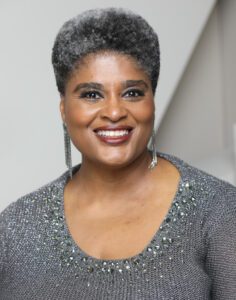
" You know, it's about relationships and the ability to use those relationships for the greater good. And there are all these different types of social capital that I don't think people recognize. ….. I don't think we realize every single day, that we are using and exchanging social capital. Our relationships move the needle. And so, I see it as this wonderful tool that we don't call out and we don't leverage as well."- Dr. Froswa Booker
Get more human resources and leadership advice.
Less drama? Greater teamwork and job satisfaction? TeamBonding is here to help you build a stronger and happier team. Subscribe to get our team building podcast and thought leadership blogs sent straight to your inbox.







